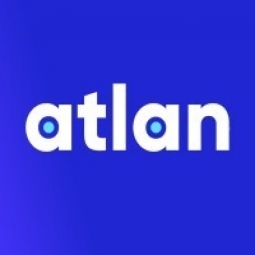Technology Category
- Functional Applications - Enterprise Asset Management Systems (EAM)
- Platform as a Service (PaaS) - Data Management Platforms
Applicable Industries
- E-Commerce
- Oil & Gas
Applicable Functions
- Quality Assurance
- Warehouse & Inventory Management
Use Cases
- Asset Health Management (AHM)
- Asset Lifecycle Management
Services
- Testing & Certification
About The Customer
Funding Societies | Modalku is a licensed digital peer-to-peer (P2P) lending platform in South East Asia. As a financial institution, it is subject to several regulatory and compliance requirements. The company operates in the FinTech world, where data is becoming an increasingly valuable asset. It gives rise to significant competitive advantages. The company aims to ensure high-quality data and meaningful management information to identify and monitor risks and understand the performance of various business functions. The company is working towards becoming a data-centric organization.
The Challenge
Funding Societies | Modalku, a licensed digital peer-to-peer (P2P) lending platform in South East Asia, faced several regulatory and compliance requirements that factored into its data strategy. As data becomes an increasingly valuable asset in the FinTech world, the company needed to ensure high-quality data and meaningful management information to identify and monitor risks and understand the performance of various business functions. The challenge was to implement a solid understanding of data governance to equip the organization with better decision-making capabilities, uniform data across the organization, increased data literacy, and improved regulatory compliance.
The Solution
Funding Societies | Modalku onboarded Atlan as their Data Management Platform to implement their initial data management and governance goals. They started by exploring their data landscape and bringing in all the structured data assets into Atlan, which natively supports Postgres and Snowflake. Atlan's UI features helped discover the data assets, and its auto-generated data dictionary provided a complete profile of the data. The company worked closely with the Atlan team to create lineage down to a column-level based on their data pipeline architecture. Atlan's lineage view provided a clear picture of the entire flow of the data. The company also used Atlan to build glossaries via bulk upload or using the UI, define all data classifications based on data domains and subdomains, and automate data quality profiling. They integrated Atlan with JumpCloud for added security and customized granular access policies suited to their unique organizational needs.
Operational Impact

Case Study missing?
Start adding your own!
Register with your work email and create a new case study profile for your business.
Related Case Studies.

Case Study
Taking Oil and Gas Exploration to the Next Level
DownUnder GeoSolutions (DUG) wanted to increase computing performance by 5 to 10 times to improve seismic processing. The solution must build on current architecture software investments without sacrificing existing software and scale computing without scaling IT infrastructure costs.

Case Study
Remote Wellhead Monitoring
Each wellhead was equipped with various sensors and meters that needed to be monitored and controlled from a central HMI, often miles away from the assets in the field. Redundant solar and wind generators were installed at each wellhead to support the electrical needs of the pumpstations, temperature meters, cameras, and cellular modules. In addition to asset management and remote control capabilities, data logging for remote surveillance and alarm notifications was a key demand from the customer. Terra Ferma’s solution needed to be power efficient, reliable, and capable of supporting high-bandwidth data-feeds. They needed a multi-link cellular connection to a central server that sustained reliable and redundant monitoring and control of flow meters, temperature sensors, power supply, and event-logging; including video and image files. This open-standard network needed to interface with the existing SCADA and proprietary network management software.

Case Study
Refinery Saves Over $700,000 with Smart Wireless
One of the largest petroleum refineries in the world is equipped to refine various types of crude oil and manufacture various grades of fuel from motor gasoline to Aviation Turbine Fuel. Due to wear and tear, eight hydrogen valves in each refinery were leaking, and each cost $1800 per ton of hydrogen vented. The plant also had leakage on nearly 30 flare control hydrocarbon valves. The refinery wanted a continuous, online monitoring system that could catch leaks early, minimize hydrogen and hydrocarbon production losses, and improve safety for maintenance.










